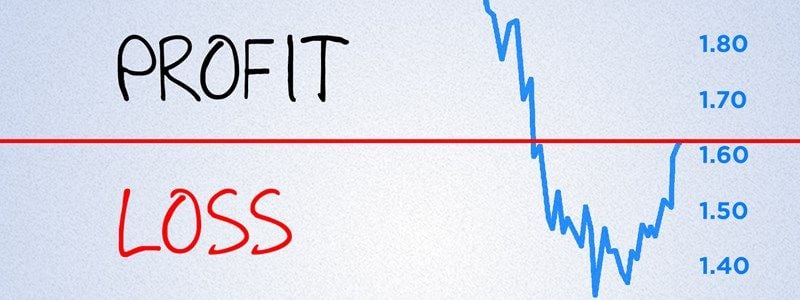Currency Exchange Fluctuations Can Put your Business at Risk
Whether you’re selling or buying overseas, much of your business strategy should include managing the effects of exchange rate changes. Foreign currency conversion fees can also increase the cost of doing business when purchasing raw materials and making supplier payments.
Know how foreign exchange rates can affect your bottom line and leverage that knowledge to make the best overseas deals. You are not only exchanging goods and services, but you are also exchanging the value of one currency for another.
What should you know about exchange rates?
Exchange rates fluctuate with the economic and political fortunes of countries. Volatility in the foreign currency exchange market results from the practice of currency pairing. That pairing is based on liquidity, trading volume, and volatility. Exotic pairings like USD/HUF (US dollar vs. Hungarian Forint) can be prone to high volatility due to local or global events.
Even in developed countries, speculators like George Soros have made fortunes on foreign exchange volatility. When Great Britain was forced to devalue the pound sterling, Soros took a short position on a $10 billion trade and ended up with a profit of $1 billion.
Exchange rates can also have an indirect effect on a business, even when the business doesn’t deal in foreign exchange. For example, transportation costs are directly connected to the price of fuel. When fuel prices and foreign currency exchange rates fluctuate, the cost of doing business can be indirectly impacted.
Let’s explore the more direct impacts of foreign currency exchange rates on your business.
How can foreign exchange transactions affect your business?
For those who need to keep their business running profitably, currency fluctuations and exchange rate movements can be a big deal if your business:
- Depends on income from overseas operations.
- Exports or imports services and goods to/from abroad.
- Must pay invoices overseas.
- Interacts in any way with foreign currencies.
When closing a deal worth thousands of dollars, a fluctuation one way or the other of just a few cents on either side of the bottom line can be the tiebreaker in the success of the deal.
Do the math: if you ship a load of goods to an overseas buyer worth $50,000, a fluctuation of just 3 cents in the currency exchange rate could result in a $1,500 loss—or gain--depending on which side of the deal you’re on.
What happens when your domestic currency exchange rate falls?
You also need to be aware of how your currency compares to the rest of the world. If your currency devalues, the decrease in value of your currency can result in the following:
- Investing in overseas operations becomes more expensive.
- Your business becomes more attractive to foreign investors.
- Higher costs for imported goods can reduce the profits for importers, but attract investments for exporters.
- Domestically produced products become more competitive against imports.
- Capital expenditure, such as importing equipment, becomes more expensive.
- Servicing foreign currency debt also becomes more expensive.
But when your domestic currency exchange rate rises, the opposite occurs:
- Exports become less competitive, and the exporter's profitability is reduced.
- The value of an investment in foreign businesses and monetary assets decreases.
- The income from foreign currency from investments is reduced.
- The cost of foreign raw materials decreases, and importers gain a competitive advantage.
- The value of foreign currency liabilities and the cost of servicing those liabilities are lowered.
- Capital expenditure costs on imported equipment go down.
- Your business is less attractive to foreign investors.
Managing the effects of exchange rate changes with MTFX
So, no matter which side of the currency exchange equation your business is on, exchange rates can affect your business’s bottom line.
Then there is the hassle and expense that come with banks getting involved in conversion or transaction fees. Banks typically reduce their own risk in handling foreign currency by charging their premium. They frequently use an intermediary bank, which adds its transaction fee in turn.
Also, converting foreign exchange to a local currency has its advantages. You either have no choice or prefer to pay your overseas customer in the local currency. However, you need a simpler, less time-consuming way to send direct, fast payments.
Maybe you have a long-range overseas business expansion plan, but want to wait for a more favourable foreign exchange rate to make your big investment move. With a forward contract, you can get today’s lower rate for future purchases without worrying about market volatility.
MTFX does all of the above and more for small and medium-sized businesses across various industries. You will also receive up-to-date foreign currency exchange rates as well as daily/weekly/monthly market analysis from experts who are dedicated to helping your business stay ahead of foreign currency exchange volatility.
Open an account with MTFX today to benefit from currency risk management in volatile markets and quick, easy money transfers.
Popular related articles:
- Money Transfer Checklist
- Best Strategic FX Management Plan
- 5 Steps in Overseas Payment Process
- 4 Steps for an Effective Hedging Strategy
- How to Minimize Currency Exchange Risk when Paying Overseas Suppliers
Sources:
Related Blogs
Stay ahead with fresh perspectives, expert tips, and inspiring stories.

Keep updated
Make informed decisions
Access tools to help you track, manage, and simplify your global payments.
Currency market updates
Track key currency movements and plan your transfers with confidence.
Create an account today
Start today, and let us take the hassle out of overseas transfers.
